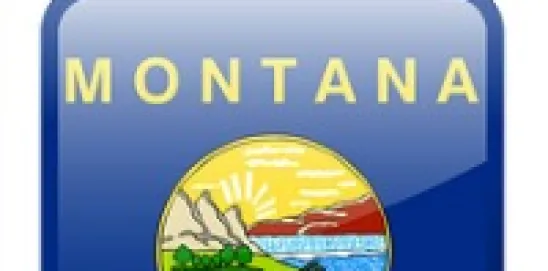Go-To Guide:
- On Dec. 22, 2023, Montana Attorney General Austin Knudsen issued an opinion on whether certain Earned Wage Access (EWA) products are “consumer loans” or “deferred deposit loans” requiring licensure under Montana law.
- Attorney General Knudsen opined that an EWA product is not a loan “so long as the EWA product is fully non-recourse, does not condition an income-based advance on any interest, fees, or other consideration or expenses, and limits income-based advances to income already earned by the consumer.”
——
On Dec. 22, 2023, Montana Attorney General (AG) Austin Knudsen issued an opinion clarifying that certain EWA products are not loans under either the Montana Consumer Loan Act or the Montana Deferred Deposit Loan Act. Accordingly, a provider of an EWA product satisfying the factors listed in the opinion is not required to obtain a license from the Montana Division of Banking and Financial Institutions to provide the EWA product in Montana.
What Is EWA?
In general, an EWA product allows a consumer to access a portion of their earned income, either as a percentage of earned income or a set amount, prior to payday. On payday, the advance is then repaid through an employer payroll deduction or through a debit from the consumer’s bank account. While EWA products vary in fee structure, voluntary gratuities, upcharges, and disbursement of funds, they often include compensation for the EWA provider in the form of a fee or an optional “tip.” Because of this, two key compliance questions EWA providers face are (1) whether EWA products are considered loans and (2) whether they can make money from these products, via fees, tips, or otherwise.
Is an EWA Payment a Loan in Montana?
The opinion discusses whether EWA products meets the definition of (1) a “consumer loan” in MCA § 32-5-102(2)(a) requiring licensure by the Montana Division of Banking and Financial Institutions under MCA § 32-5-103; or (2) a “deferred deposit loan” under Montana Code Annotated (MCA) § 31-1-703.
In the opinion, AG Knudsen opined that an EWA product is not a loan so long as the EWA product satisfies the following factors:
- Fully Non-Recourse. This means that the EWA provider lacks a legal or contractual entitlement to (1) seek repayment from consumers, (2) participate in debt collection activities, (3) sell or assign a balance associated with an EWA payment, and (4) notify any consumer non-payment to a reporting agency.
- Limits advances to income already earned by the consumer. This means that an EWA provider only makes EWA payments in an amount that is equal to or less than the consumer has already earned in a given pay period. AG Knudsen opined that EWA products that adhere to this principle do not lend money or extend credit, but instead grant a consumer access to income that the consumer has already earned, thus merely changing the date of payment. Important here: the opinion does not specify how an EWA provider must ascertain what amounts a consumer has already earned.
- Not conditioned on any interest, fees, or other consideration or expenses. This means that, when an EWA provider provides an income-based advance, neither the amount of the advance nor the advance itself can be tied to mandatory payments of interest, fees, or other charges. Important here: voluntary tips and “certain ancillary service charges” are excluded from being classified as “interest,” “fees,” “consideration,” or “expense” in the opinion, as neither the accessibility nor the amount of the advance relies on the payment of a tip or charge.
So, Can an EWA Provider Make Money from an EWA Product in Montana?
EWA providers can make money from EWA products in Montana, but the opinion, as noted above, places limits on how EWA providers may do so, permitting only voluntary tips and “certain ancillary service charges.”
- Voluntary Tips. EWA providers who rely on purely voluntary tips that are not required for the consumer to receive an advance may welcome the opinion, as it appears to largely validate their fee structure. EWA providers who charge fees to access an EWA product or individual advances, however, will likely need to reevaluate their offering.
- “Certain Ancillary Service Charges.” While the opinion does not give examples of “certain ancillary service charges,” it does provide that “if the EWA product does not condition the amount of the advance, or the advance itself, on payment of an ancillary service charge, then the ancillary service charge” does not fall within the meaning of interest or other consideration for loan. Put differently, an EWA provider can charge for an additional, related service in connection with an EWA payment, as long as the additional, related service does not affect the availability of an EWA payment to a consumer, or the amount of an EWA payment. For example, an additional and purely optional charge to have an EWA payment delivered to a consumer faster may fall within this category.
Takeaways
Montana is now part of the growing number of states that acknowledge EWA products as an innovative payroll solution, granting employees the ability to retrieve wages they have already earned without resorting to high-cost alternatives. Indeed, the opinion highlights that “fully non-recourse EWA products” sidestep many of the issues prevalent in the payday loan marketplace, including high interest rates, aggressive debt collection practices, implications on credit reports, and the extensive cycle of reborrowing.
Montana, however, only represents one state’s approach. For example, Maryland (as we discussed here), has provided guidance based on Maryland law that favors employer-provided EWA products and classifies voluntary tips to EWA providers as interest.
Moving forward, EWA providers should note that more and more states are finding that EWA products do not always fit neatly within their existing regulatory frameworks and are acting to address those ambiguities in ways that can help or hinder existing EWA business models.
Zeba Pirani contributed to this article.





 />i
/>i

